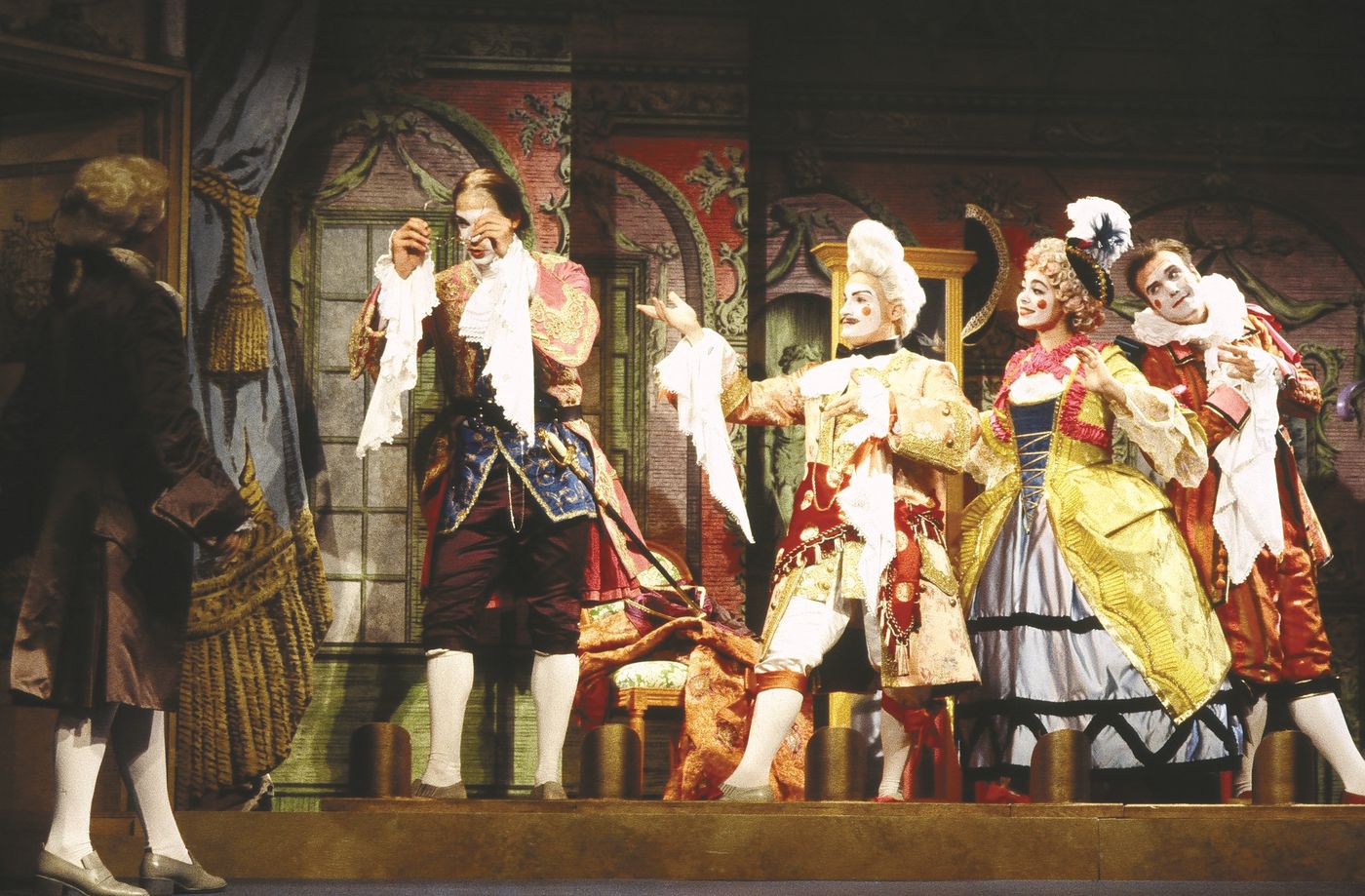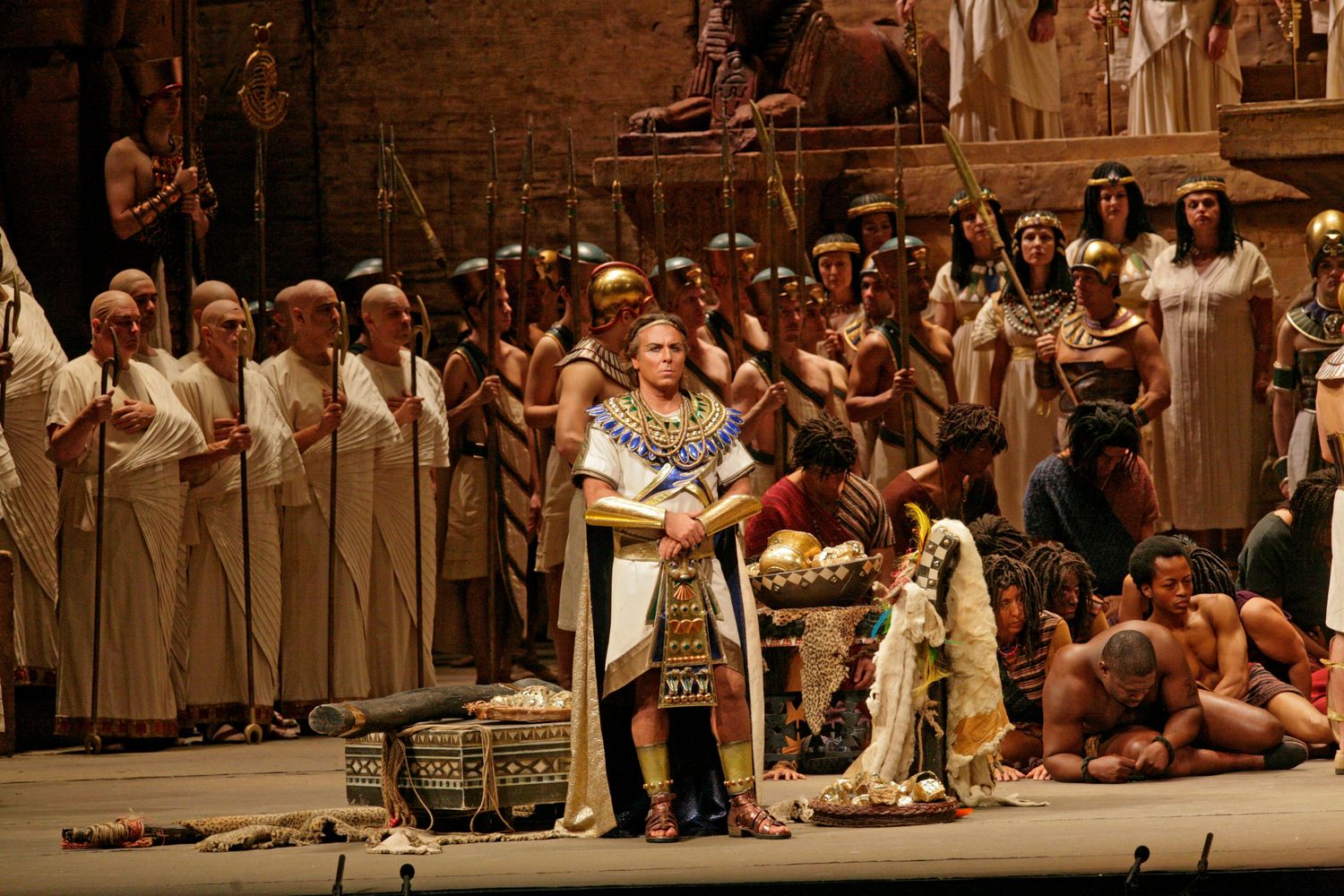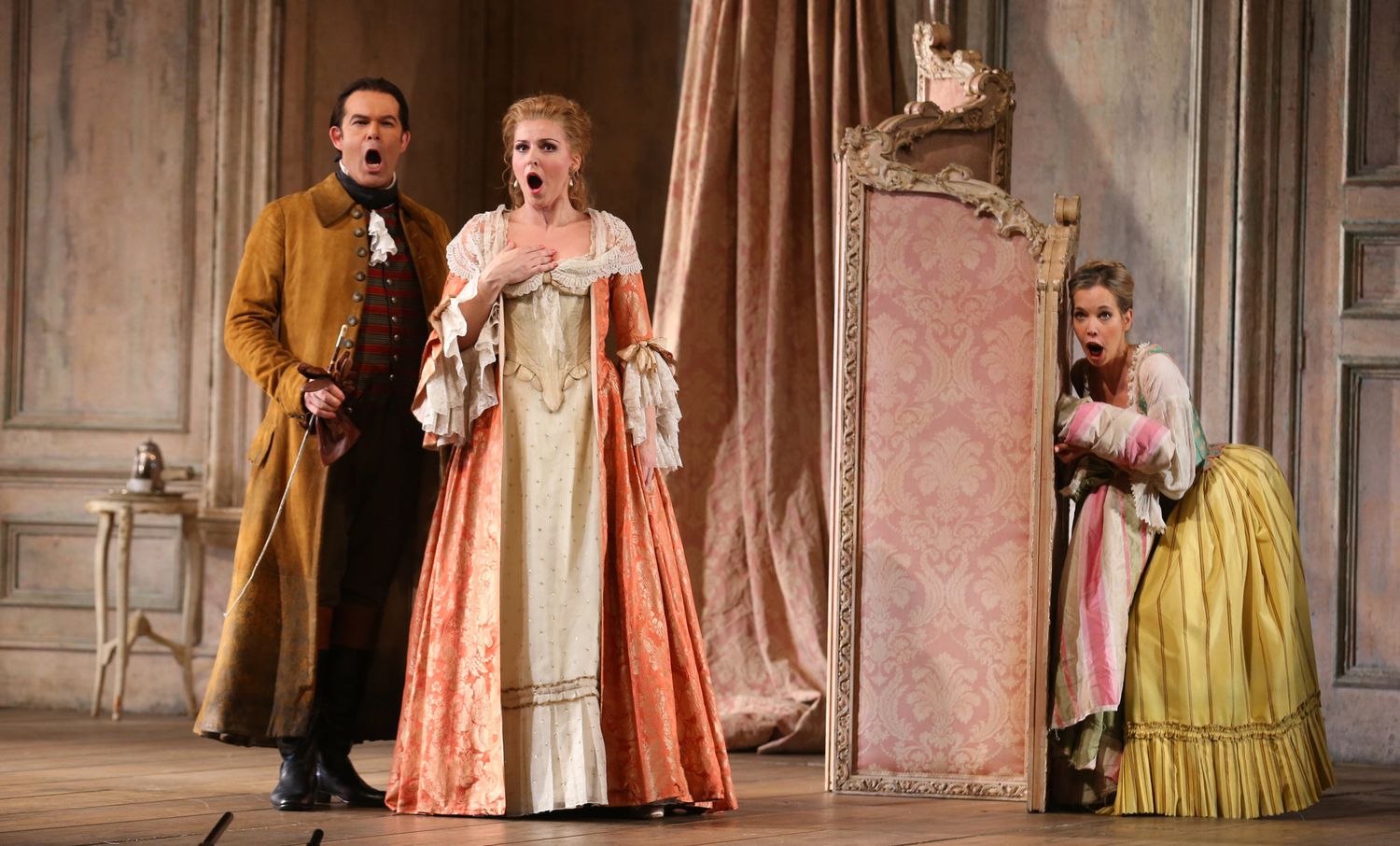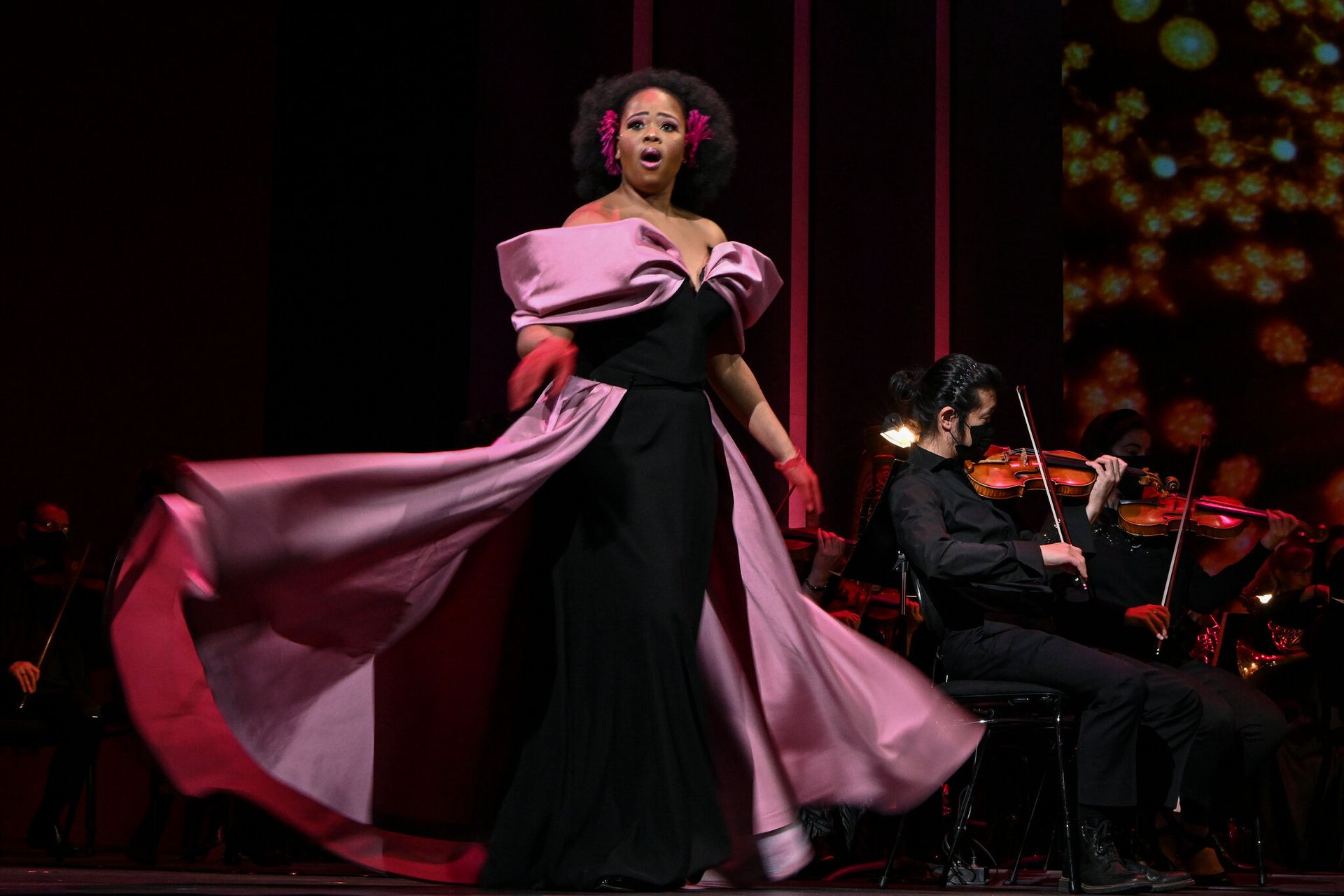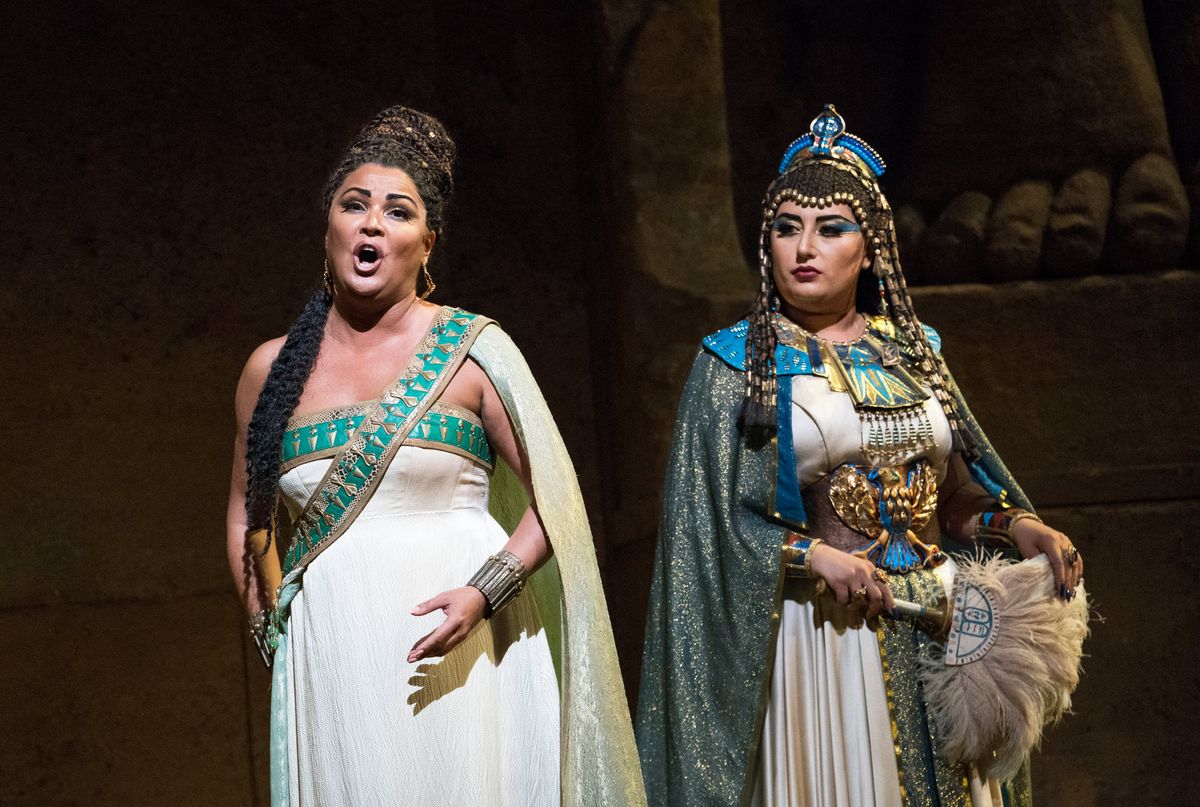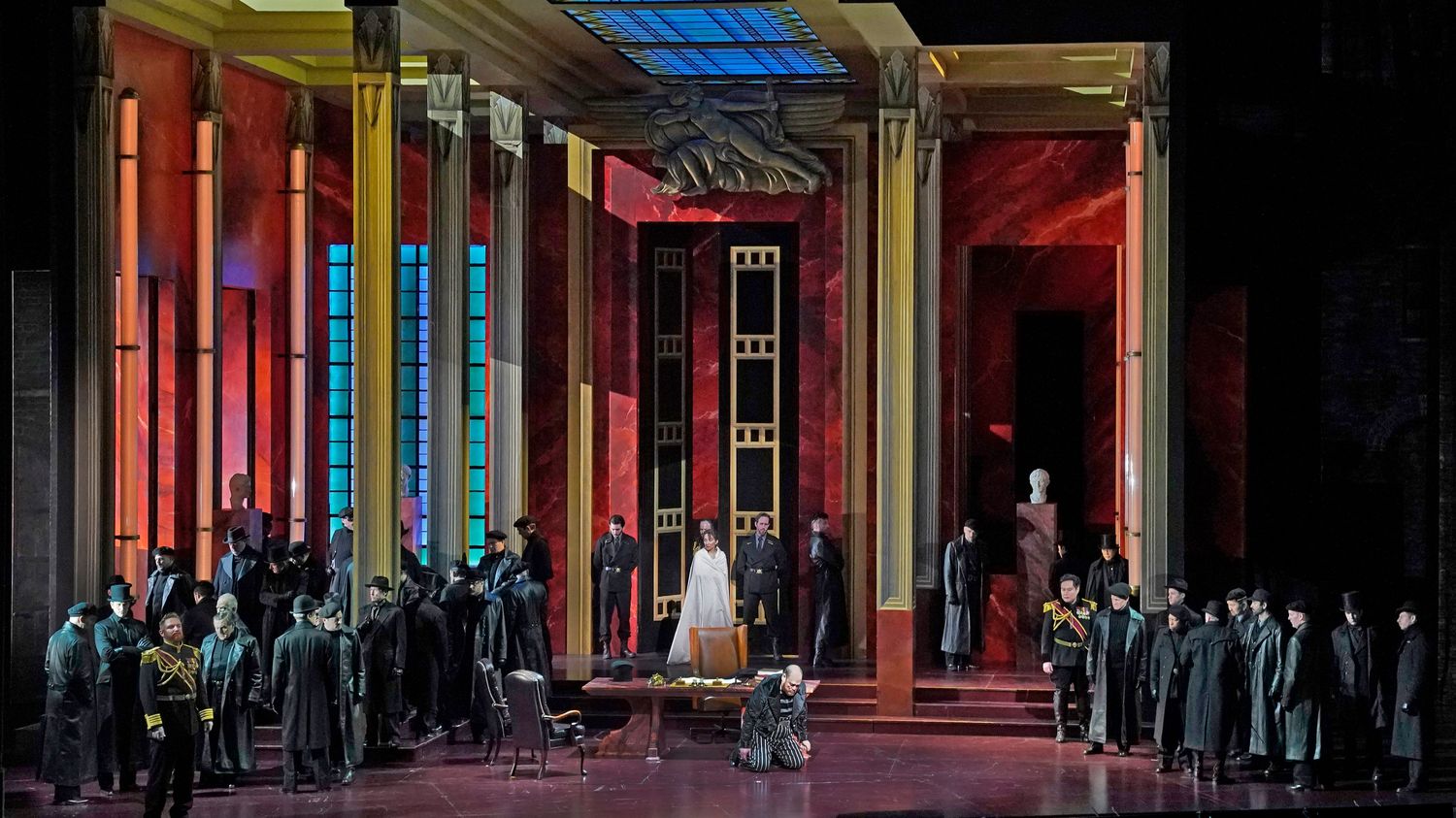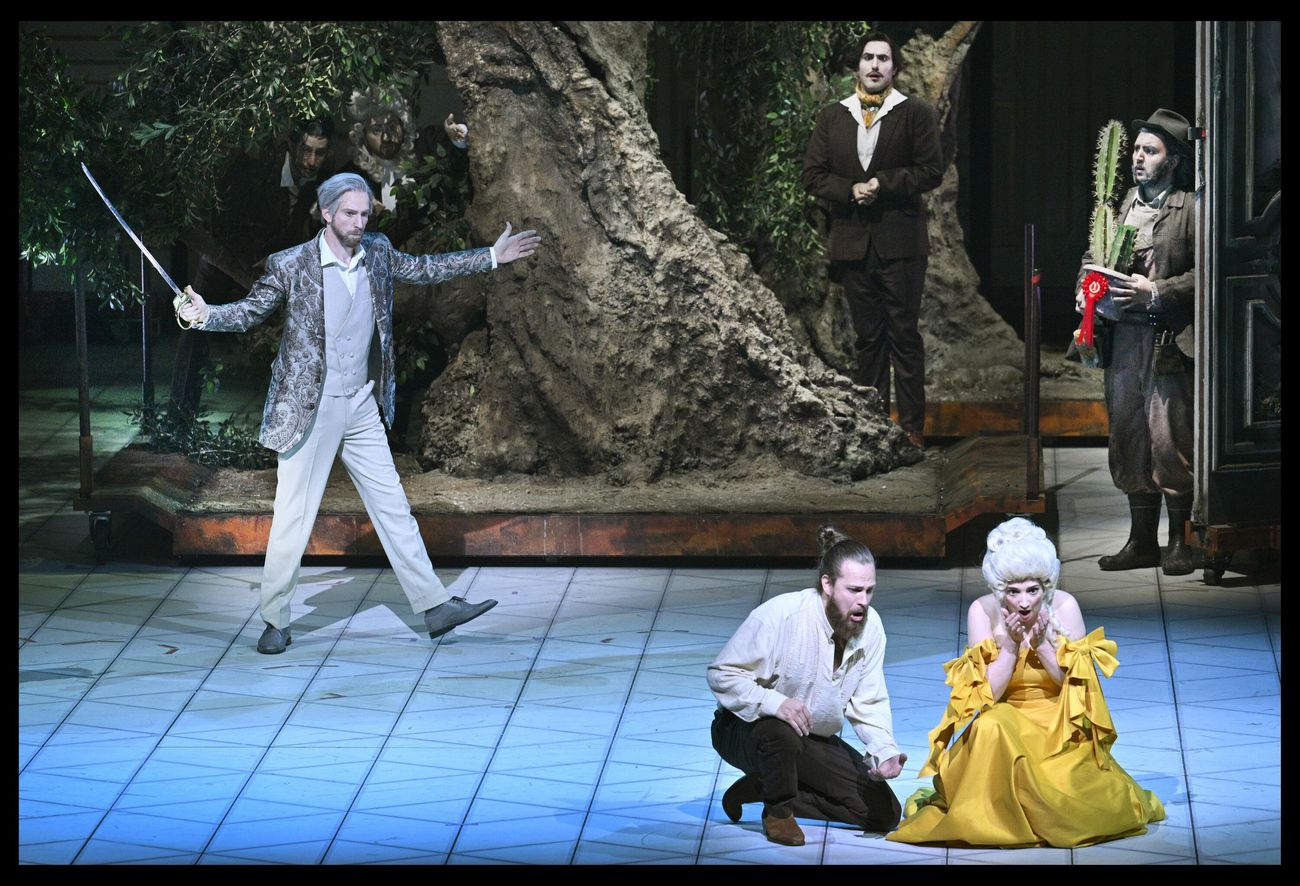Home>Events & Info>Opera>What Language Is The Opera Carmen In
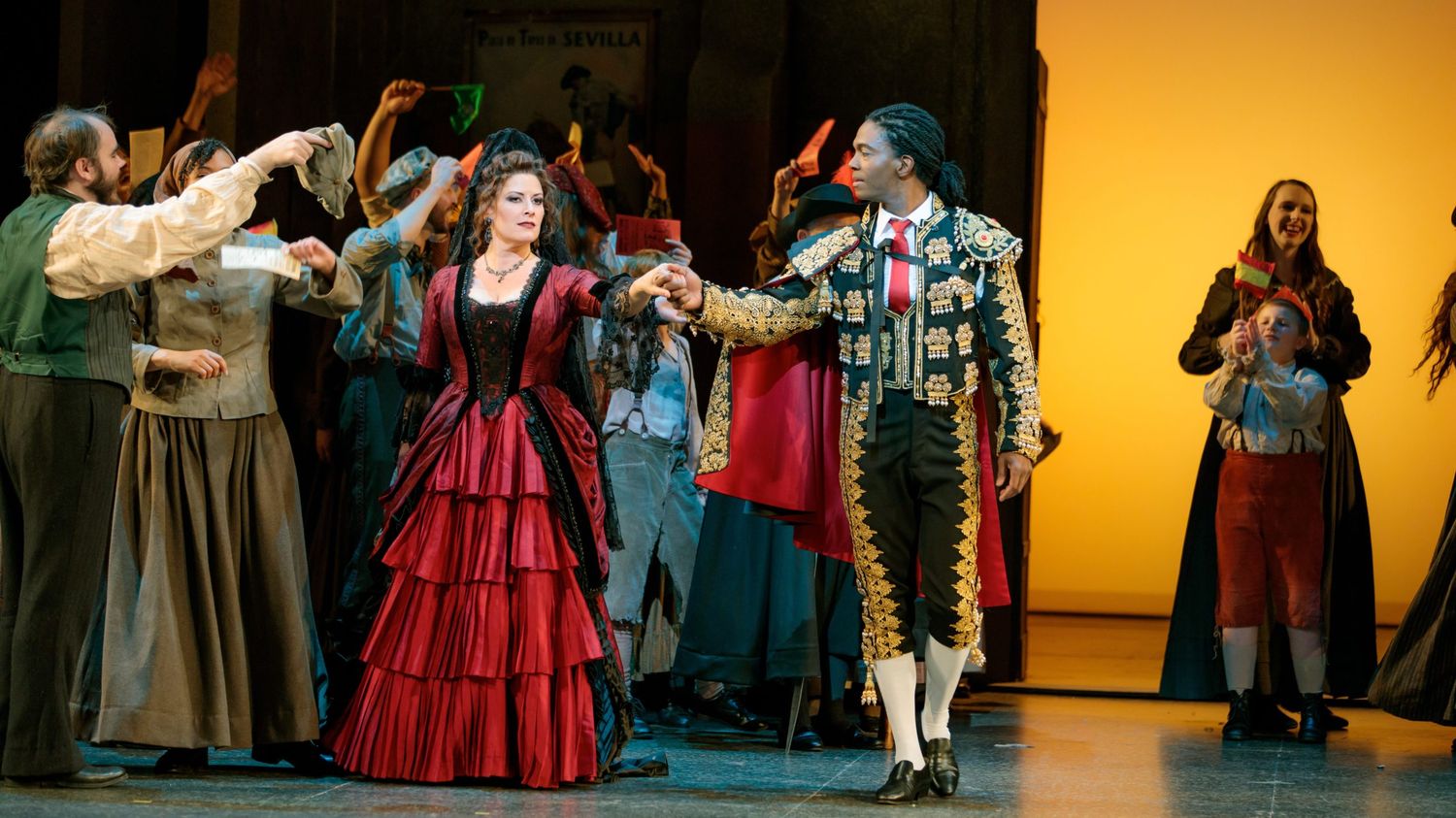

Opera
What Language Is The Opera Carmen In
Published: January 7, 2024
Discover the beautiful opera Carmen and learn about the language it is performed in. Explore the rich history of this iconic opera and experience the power of music and drama.
(Many of the links in this article redirect to a specific reviewed product. Your purchase of these products through affiliate links helps to generate commission for AudioLover.com, at no extra cost. Learn more)
Table of Contents
Introduction
Opera is an art form that combines music, theater, and storytelling, captivating audiences through its powerful performances. One of the most beloved and enduring operas of all time is “Carmen.” This iconic masterpiece has enchanted audiences around the world since its premiere in 1875.
With its passionate characters, dramatic storyline, and unforgettable musical score, Carmen has become a cornerstone of the operatic repertoire. It tells the story of a fiery Gypsy woman named Carmen, her forbidden love affairs, and the tragic consequences that follow. The opera has captivated audiences with its exploration of love, jealousy, and destiny.
In order to fully appreciate and understand the impact of Carmen, it is essential to explore various aspects of this iconic opera. One key aspect is the language in which it is performed. Language plays a crucial role in the interpretation and delivery of the story, connecting the audience to the singers and the emotions they convey.
In this article, we will delve into the language of the libretto, the controversies surrounding the language choice, and the impact of language on the overall performance. Additionally, we will explore the translations and adaptations of Carmen, which have allowed this extraordinary opera to reach audiences worldwide.
Join us as we embark on a journey to discover the linguistic intricacies and artistic brilliance of Carmen, and gain a deeper understanding of this opera’s timeless appeal.
Background of the Opera Carmen
Carmen, composed by Georges Bizet, is based on a novella by Prosper Mérimée, which was first published in 1845. The story takes place in Seville, Spain, during the 19th century and follows the turbulent love affair between the free-spirited Carmen and the soldier Don José.
When it premiered on March 3, 1875, at the Opéra-Comique in Paris, Carmen initially faced mixed reviews from critics. However, it quickly gained popularity among audiences and has since become one of the most frequently performed operas in the world.
What sets Carmen apart from other operas of its time is its realistic portrayal of characters from the lower class and its incorporation of Spanish themes and melodies. Bizet’s composition skillfully incorporates Spanish rhythms, dances, and folk tunes, immersing listeners in the vibrant atmosphere of the opera’s setting.
Despite the initial challenges Carmen faced, its dramatic and seductive storyline, along with Bizet’s masterful musical compositions, have solidified its place as a timeless masterpiece in the opera world.
With its depiction of passion, jealousy, and the struggle between duty and desire, Carmen continues to captivate audiences worldwide. Its universal themes and powerful emotions resonate with people from all walks of life, making it a favorite among both seasoned opera enthusiasts and newcomers to the art form.
As we delve deeper into the world of Carmen, we can understand why this opera holds such a special place in the hearts of opera lovers and why it continues to be performed and celebrated to this day.
Composer of Carmen
The composer of Carmen, one of the most renowned operas in the world, is Georges Bizet. Born on October 25, 1838, in Paris, France, Bizet displayed remarkable musical talent from a young age. He began his music studies at the Paris Conservatoire at the age of nine and quickly showed promise as a composer.
Bizet’s musical style was influenced by a variety of sources, including the works of composers such as Wagner and Mozart. He was known for his ability to seamlessly blend different musical genres, creating a unique and innovative sound. With Carmen, Bizet demonstrated his incredible skill in crafting melodies that were both captivating and emotionally charged.
Despite his undeniable talent, Bizet faced numerous challenges in his career. Carmen, in particular, was met with initial resistance from critics who deemed it too risqué and unconventional. Tragically, Bizet passed away just three months after Carmen’s premiere, at the young age of 36, never witnessing the overwhelming success and lasting impact of his most famous work.
Over time, Carmen has come to be recognized as Bizet’s masterpiece and a testament to his extraordinary compositional abilities. The opera showcases his talent for creating memorable melodies, rich orchestrations, and dynamic vocal writing. Through his music, Bizet captures the essence of each character, their emotions, and the intense passion that drives the narrative.
Today, Georges Bizet is remembered as one of the most influential composers of the Romantic era. His music continues to inspire generations of musicians and his contribution to the world of opera, particularly through Carmen, remains unparalleled.
As we explore the intricate web of passions and emotions that make up Carmen, we cannot overlook the genius of Georges Bizet and the enduring legacy of his music.
Libretto of Carmen
The libretto of Carmen, the text that is sung in an opera, was written by Henri Meilhac and Ludovic Halévy. The two librettists adapted the story from Prosper Mérimée’s novella, bringing the vibrant characters and dramatic storyline to life on the operatic stage.
Meilhac and Halévy were well-known French playwrights and librettists of the time, with a reputation for crafting engaging and evocative texts. They collaborated with Bizet to create a libretto that captures the essence of the original novella while ensuring its suitability for the operatic medium.
The libretto of Carmen follows the key events and themes of Mérimée’s story, delving into the complex relationships and passionate encounters of the characters. It explores themes of love, jealousy, and fate, portraying vivid emotions and moral conflicts that resonate with audiences.
One notable aspect of the libretto is its realistic portrayal of the lower class and include colorful and authentic dialogue. This departure from the aristocratic themes typical of opera at the time was groundbreaking, allowing for a more relatable and gritty depiction of characters and situations.
Through the power of their words, Meilhac and Halévy bring each character in Carmen to life. From the fiery and seductive Carmen herself to the conflicted and vulnerable Don José, the libretto provides a canvas for the performers to convey the depth and complexity of their roles.
The libretto of Carmen, combined with Bizet’s emotive music, creates a potent and captivating experience for audiences. The combination of powerful storytelling and evocative melodies elevates Carmen to the ranks of the most beloved and frequently performed operas of all time.
As we continue our exploration of Carmen, we must acknowledge the artistry and skill of Meilhac and Halévy’s libretto, which serves as the foundation for the opera’s enduring popularity.
Language of the Libretto
The original libretto of Carmen was written in French, the native language of both Georges Bizet and the librettists, Henri Meilhac and Ludovic Halévy. This choice of language was influenced by the fact that the opera was intended for performance at the Opéra-Comique in Paris, where French was the dominant language.
The use of French in the libretto allowed the creators to seamlessly capture the nuances and rhythms of the language, enhancing the overall musicality and flow of the opera. It also enabled the performers to fully express the emotions and intentions of their characters, as they could naturally connect with the text in their native tongue.
Furthermore, the French language added an additional layer of authenticity to the setting of Carmen, which takes place in Spain. At the time, French was widely spoken among the educated class in Spain, making it a plausible choice for the characters to communicate in the opera.
Since its premiere, Carmen has been performed in countless languages, thanks to its enduring popularity and global reach. Each new performance brings forth the challenge of translating the libretto into the language of the local audience while striving to maintain the spirit and integrity of the original text.
Translating the libretto of Carmen is a delicate task, as it requires balancing the linguistic and cultural nuances of the source language with the need to make the opera accessible and relatable to a new audience. Translators must carefully consider the rhyme, meter, and emotional impact of the original French libretto to ensure that the translated version does justice to Bizet’s music and the storytelling.
Over the years, Carmen has been translated into various languages, including English, Italian, German, and Spanish, among others. These translations have allowed the opera to resonate with audiences across different cultures and languages, ensuring its continued popularity and relevance.
The language of the libretto plays a vital role in the performance of Carmen, allowing the singers to fully embody their characters and deliver a powerful and authentic portrayal. Whether performed in its original French or translated into another language, the libretto brings the story of Carmen to life, weaving together words and music to create a truly immersive experience for audiences.
Controversies surrounding the Language Choice
While the original libretto of Carmen was written in French, the choice of language has sparked some controversies and debates over the years. One main point of contention is the question of preserving the authenticity of the opera versus making it more accessible to diverse audiences.
Some argue that performing Carmen in its original French adds an element of cultural and historical accuracy, giving audiences a deeper understanding of the opera’s context. They believe that preserving the language of the libretto is crucial in order to maintain the integrity of Bizet’s work and the artistic intentions of the creators.
On the other hand, proponents of performing Carmen in local languages argue that translating the libretto allows for a more immediate connection between the performers and the audience. They believe that by using a language that the audience understands fluently, the emotional impact and storytelling can be enhanced, resulting in a more immersive experience.
Another controversy arises when considering the cultural implications of having non-native speakers perform Carmen in languages that are not their own. Critics argue that in order to fully appreciate and convey the nuances of the opera, it is essential for the performers to have a deep understanding of the language and culture underlying the libretto.
However, others argue that excellent translations and skilled performances can bridge the language barrier effectively, allowing the performers to embody the characters and convey the essence of the opera, regardless of their native language.
Ultimately, the language choice for Carmen remains a subject of debate and interpretation. Productions of Carmen have been performed in various languages, each with its own merits and challenges. Whether performed in its original French or translated into another language, the goal is to create a powerful and emotive experience for audiences.
As audiences continue to connect with Carmen on a global scale, it is important to strike a balance between honoring the artistic intentions of the original creators and making the opera accessible to diverse cultures and languages.
Regardless of the controversies surrounding the language choice, Carmen continues to captivate and move audiences worldwide, reminding us of the power of music and storytelling to transcend linguistic and cultural boundaries.
Impact of Language on Carmen’s Performance
The language in which Carmen is performed has a significant impact on the overall performance, influencing the audience’s connection to the characters, the emotional resonance of the music, and the authenticity of the storytelling.
When performed in its original French, the language of the libretto allows the performers to fully express the nuances and intentions of their characters. The natural flow and musicality of the French language, combined with Bizet’s musical score, create a seamless and cohesive experience for the audience. It allows for a deeper understanding and appreciation of the intricacies and emotions of the opera.
Performing Carmen in the language of the local audience, through translation, can also have a powerful impact. By using a language that the audience understands fluently, the performers can form a direct and immediate connection with the audience. This allows for a more visceral experience, as the audience can fully grasp the dialogue, lyrics, and subtle nuances of the story.
However, there are challenges that come with translating Carmen into different languages. Translating the libretto while preserving the essence of the original text and maintaining the rhyme, meter, and emotional impact can be a complex task. The success of the translation greatly depends on the skill of the translator and their ability to capture the spirit of the opera in a language that is accessible to the audience.
While there may be debates about the preferred language of Carmen’s performance, there is no denying that the passion, intensity, and universal themes of the opera transcend language barriers. The power of the music, combined with the skillful acting and vocal prowess of the performers, allows Carmen to resonate with audiences regardless of language.
Whether showcased in its original French or translated into the language of the audience, the language in which Carmen is performed contributes to the immersive nature of the opera. It adds depth and authenticity to the characters, enhances the emotional impact of the music, and invites the audience into the vibrant world of the story.
Ultimately, the language choice in Carmen’s performance is a balancing act – preserving the artistic intentions of the original creators while making the opera accessible to diverse audiences. It is through this delicate balance that Carmen continues to captivate and move audiences, regardless of language spoken, proving the timeless power and universality of this extraordinary work of art.
Translations and Adaptations of Carmen
Since its premiere, Carmen has been translated and adapted into numerous languages, allowing the opera to reach audiences around the world. These translations and adaptations have opened up new possibilities for interpretations, cultural reimaginations, and expanded the accessibility of Carmen to diverse communities.
One of the most notable translations is the English version by Henry Hersee, which was performed in London in 1878. This translation brought Carmen to a wider English-speaking audience and contributed to its growing popularity outside of France.
Other notable translations include those in Italian, German, Spanish, Russian, and many more. Each translation seeks to capture the essence of the story and libretto while adapting it to the linguistic and cultural nuances of the target language. This allows for a more immersive experience for audiences who may not be fluent in the original French language.
Besides translations, Carmen has also been subject to various adaptations and reinterpretations. These adaptations often involve changes in the setting, time period, or cultural context of the opera. For example, adaptations have placed Carmen in different locations or time periods, such as a Western-themed adaptation set in the American Wild West or a contemporary urban interpretation in a bustling city.
Additionally, Carmen has influenced many other art forms beyond opera. It has been adapted into ballets, films, and even modern stage productions, further widening its reach and impact on popular culture.
These translations and adaptations showcase the flexibility and enduring appeal of Carmen. By presenting the opera in different languages and cultural contexts, it allows for new interpretations and connections with audiences from diverse backgrounds.
While some may argue that translations and adaptations dilute the original essence of Carmen, they also provide opportunities for fresh interpretations, innovation, and engagement with new audiences. By adapting Carmen to different languages and settings, it ensures that the opera remains relevant and continues to captivate audiences throughout the years.
Translators, composers, and directors play crucial roles in these adaptations, carefully balancing the original intentions of the creators while exploring new possibilities and breathing new life into the timeless story of Carmen.
Regardless of the language or adaptation, Carmen’s enduring popularity is a testament to its universal themes, captivating music, and timeless storytelling, which continue to resonate with audiences across cultures and generations.
Conclusion
Carmen, with its passionate characters, dramatic storyline, and mesmerizing music, has cemented its place as one of the most beloved and enduring operas in history. The language in which Carmen is performed plays a vital role in the opera’s impact and success.
While the original libretto was written in French, Carmen has been translated and performed in various languages, allowing a wider audience to experience the power and allure of the opera. Each translation presents its own unique interpretation, capturing the essence of the story while adapting to the linguistic and cultural nuances of the target language.
The language choice in Carmen’s performance sparks debates and controversies, as some argue for the preservation of the original French libretto for cultural and historical accuracy, while others advocate for translations that make the opera more accessible to diverse audiences. Ultimately, these debates highlight the challenge of balancing authenticity with accessibility to enhance the emotional impact and storytelling of Carmen.
Translations and adaptations of Carmen have opened up new possibilities for interpretation and cultural reimagining. From different languages to innovative settings and contemporary adaptations, these variations keep Carmen relevant and engaging for audiences across time and cultures.
Regardless of the language in which Carmen is performed, the essence of the opera remains undeniably powerful. The universal themes of love, jealousy, and fate, combined with Georges Bizet’s evocative music, transcend linguistic barriers and continue to resonate with audiences worldwide.
As we reflect on the language and impact of Carmen, we are reminded of the enduring legacy of this remarkable opera. Its ability to connect with audiences, evoke profound emotions, and captivate generations is a testament to the timeless power of music and storytelling.
Whether experienced in its original French, translated into a local language, or adapted to a new cultural context, Carmen’s allure endures, reminding us of the enduring impact of this masterpiece and its ability to touch the human soul.

